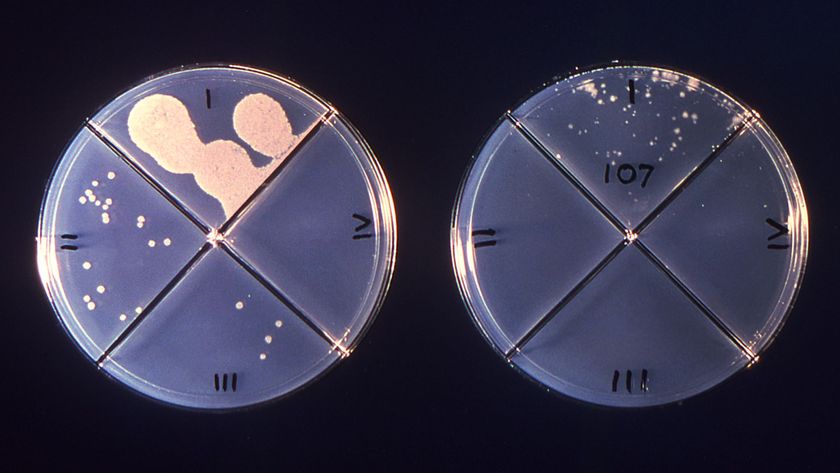Chicago Hit Hard by Nationwide, Drug-Resistant Germ
Infections from a deadly, drug-resistant strain of bacteria spreading around the nation tripled in Chicago in the past year, according to a recent survey in the city.
The bacteria, called Klebsiella pneumonia, are common and naturally live in our mouths and intestines, as well as on our skin. But some strains produce an enzyme that gives them resistance to a number of antibiotics.
Infections that include the enzyme, which is known as KPC, rarely affect healthy people. They usually occur in vulnerable individuals often the elderly who are already being treated for other conditions, and they can cause pneumonia, urinary tract infections, meningitis or bloodstream infections, according to the Centers for Disease Control and Prevention. "KPC" stands for Klebsiella pneumoniae carbapenemase.
Research led by Dr. Mary Hayden of Rush University Medical Center in Chicago found the number of patients who tested positive for KPC infections in Chicago nearly tripled between 2009 and 2010. During the same period, the number of Chicago health-care facilities that reported infections with the bacteria increased 42 percent, from 26 facilities to 37.
KPC-producing bacteria first appeared in the United States in North Carolina in 1999, and have since spread to 35 states, the CDC says.
"I think people are certainly concerned about antibiotic-resistant infections , and this is another," said Nicole Coffin, a CDC spokeswoman."It's not necessarily a call to panic, but it's certainly a call to action."
The results of Hayden's survey were presented Oct. 22 in Vancouver at the 48th annual meeting of the Infectious Diseases Society of America.
Sign up for the Live Science daily newsletter now
Get the world’s most fascinating discoveries delivered straight to your inbox.
Hayden, director of clinical microbiology and associate professor of infectious diseases and pathology at Rush, said KPC-producing bacteria have evolved into a major challenge for infection control . Most strains are resistant to usual antibiotics, and some are resistant to all drugs, she said.
"In the Chicago area, this is a relatively recent phenomenon," Hayden told MyHealthNewsDaily. "In the last three or four years, this has really accelerated worldwide."
KPC infections are associated with a high mortality rate. Hayden cited a separate study that found infected patients were three times as likely to die as were patients infected with similar bacteria that don't produce KPC.
In the Chicago survey, 26 of 54 health facilities reported KPC-positive infections in 2009. A year later, that number increased to 37 of 57 facilities. And the average number of patients at each facility who tested positive for the bacteria increased from four to 10 over that time.
Treatment options for these drug-resistant infections are limited, Hayden said, because they don't respond to antibiotics called carbapenems, which are an entire class of drugs prescribed when everything else fails. Patients using devices such as ventilators or catheters, or those taking long courses of certain antibiotics, are most at risk, according to the CDC.
"If the infection is device-related, we remove the device," Hayden said. "If it's an abscess, we drain it. Source control is very important."
The CDC issued stringent guidelines in 2009 on how to prevent KPC-positive infections from spreading, Coffin said. Precautions for health-care professionals include wearing gowns and gloves when entering infected patients' rooms, and strict adherence to hand hygiene. The bacteria are not spread through the air.
"Prevention is really key," Hayden said, "and it's an ideal time to be very aggressive."












